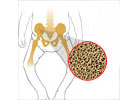Evidence-based guidance for how iron deficiency should be detected and managed to ensure long-term health benefits has been published.

TOP INSIGHT
Anaemia and iron deficiency have serious long-term health consequences, and it is important that they are appropriately diagnosed and managed.
The new guidance has been published today in a review in The Lancet, by WEHI clinician scientists Associate Professor Sant-Rayn Pasricha and Associate Professor Jason Tye-Din, who are both also physicians at The Royal Melbourne Hospital, together with Professor Martina Muckenthaler from University of Heidelberg, Germany, and Professor Dorine Swinkels from Radboud University Medical Center, the Netherlands.
Iron deficiency is a very common health condition both in Australia and around the world, and is a common cause of anaemia in people of all ages.- Anaemia and iron deficiency have serious long-term health consequences, and it is important that they are appropriately diagnosed and managed.
A new review in The Lancet has outlined cutting-edge, evidence-based guidance for how iron deficiency should be detected and managed, to ensure long-term health benefits.
Iron deficiency is a common problem worldwide, including in Australia, where it impacts all ages from young children through to the elderly: twelve per cent of Australian women are currently iron deficient, and one in 10 Australians has been iron deficient at some point of their lives.
"Our review has provided clear guidelines for how to test for iron deficiency, and the best approaches to treat it both in Australia and internationally."
"We recently discovered that approaches to treating iron deficiency should be tailored to different countries," he said.
"In Australia, there have been many advances in how iron deficiency is managed in the last two decades, but as a haematologist I can see that some people are still not getting the best care. For example, some people whom might benefit from intravenous iron are not being offered this, despite clear evidence it can quickly restore iron levels.
"We hope this review will provide clear information for doctors in Australia and around the world, improving the management of iron deficiency - which will have widespread benefits on people's health."
While iron deficiency is often caused by a lack of iron in the diet, it can also be a sign of serious health problems including bowel cancer or coeliac disease, said Associate Professor Tye-Din, who is a gastroenterologist at the Royal Melbourne Hospital.
"It's really important that the cause of iron deficiency is properly investigated, rather than patients just being instructed to take iron supplements," he said. "If doctors don't take iron deficiency seriously and investigate why it is happening, serious health problems could be overlooked. In some cases these can be potentially life-threatening. This is something we've really highlighted in the review."
Source-Eurekalert
 MEDINDIA
MEDINDIA



 Email
Email










